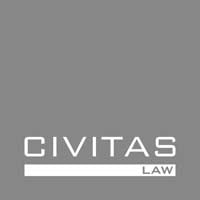
Civitas Law
Barristers
Christopher Howells
- Phone0845 0713 007
- Email[email protected]
Work Department
Employment; personal injury and clinical negligence.
Position
Chris is ranked as a Chambers UK Guide ‘Leader in their field’ and a leading barrister for employment law and is also a specialist member of the personal injuries and clinical negligence group, where he is often asked to conduct employer liability and stress work claims given the overlap with his employment law practice. Employment: Chris’ employment practice ranges from routine unfair dismissal claims to discrimination claims on all of the prohibited grounds. He is also regularly instructed to deal with sometimes complex TUPE cases, particularly involving insolvent employers. Chris has appeared on behalf of a number of well-known companies before employment tribunals across the UK. This is supplemented by a strong following of smaller businesses and organisations. Chris also has a strong claimant-based following. This balance between claimant/respondent workload has provided Chris with an invaluable insight as to how to most effectively present the cases that he is instructed to deal with. Personal injury: Chris has a wide range of experience in personal injury work with a mixed practice of claimant and respondent work. He is happy to undertake appropriate cases on a CFA basis. He is often asked to conduct employer liability and stress at work claims given the overlap with his employment law practice. Recent notable cases: Bayliss v Chief Constable of South Wales Police, Cardiff ET November 2014. Chris acted for the respondent who faced multiple allegations from a former police officer that he had been discriminating against over several years. The claim was valued in excess of £500,000. After a seven day hearing the Tribunal dismissed all claims. Bowen v Swansea County Council, Cardiff ET October 2013. Acted for the respondent. The claimant asserted that he had suffered disability discrimination and that he had been dismissed as a result of making protected disclosures. He was seeking in excess of £250,000 damages from his former employer. After a five day hearing the Tribunal rejected all of his complaints. JRB Cable Installations v HDJ Electrical Ltd, Manchester High Court, April 2013. Chris acted for the applicants who successfully obtained a springboard injunction against their former employees. The application was based on the misappropriation of a large volume of confidential information by the former employees to assist them in setting up a rival business. Having obtained the injunction from the High Court, the respondents agreed to pay a substantial sum in damages to the claimant. Arriva Trains Wales v Conant, EAT November 2011. Appeal against the ET’s finding that the claimant’s dismissal had been unfair. It was argued on appeal that the ET had fallen into error by substituting its own opinion as to the fairness of the dismissal for that of the employer; Cox v Northern Devon NHS, EAT 2011. Successful appeal against the decision to restrict the claimant’s damages to a nominal period of time. The EAT upheld the submission that the ET had failed to correctly apply the relevant legal principles to this case.
Career
Qualified 1999. Chris regularly delivers CPD accredited training in his specialist fields and contributes to national and specialist publications.
Memberships
Employment Lawyers’ Association, Wales and Chester Circuit, PIBA.
Education
Atlantic College, St Donat’s (1993-1995) International Baccalaureate; University College London (1995-98) LLB (Law); Inns of Court School of Law (1998-99)-BVC; Cambridge University (1999-2000) MPhil., MA.